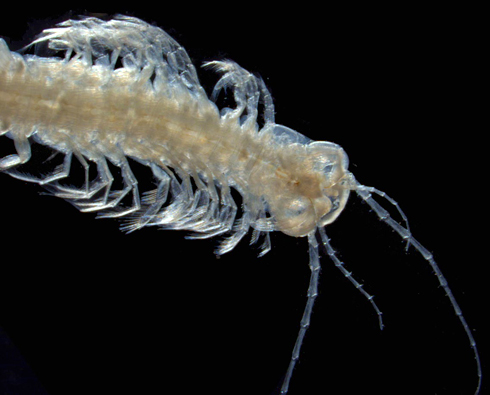This is the first venomous crustacean ever discovered on earth. The venom glands of the so-called remipede express a unique toxin cocktail dominated by enzymes and a neurotoxin similar to that found in spiders.

The first First venomous crustacean has been discovered and confirmed by a team of researchers at the Natural History Museum in London. This new, poisonous crab species was first discovered in Western Australia, but can also be found in underwater caves of the Caribbean and Canary Islands.
The venom of this blind animal with many legs called remipede, contains a complex cocktail of poisons, including a paralysing agent, which breaks down a prey’s body tissue allowing the crab to suck out a kind of liquid meal from its victim’s exoskeleton.
As written in the abstract of their paper, Dr Bjoern von Reumont writes: “We provide the first conclusive evidence that the aquatic, blind and cave-dwelling remipede crustaceans are venomous. This first glimpse into the venom of a crustacean and primitively aquatic arthropod reveals conspicuous differences from the venoms of other predatory arthropods such as centipedes, scorpions and spiders, and contributes valuable information for ultimately disentangling the many factors shaping the biology and evolution of venoms and venomous species.”
The discovery has been detailed in the journal Molecular Biology and Evolution. (SOURCE)













[…] Strange Animal: World’s First Venomous Crab Found in Waters Off Western Australia (strangesounds.org) […]
[…] Strange Animal: World’s First Venomous Crab Found in Waters Off Western Australia (strangesounds.org) […]